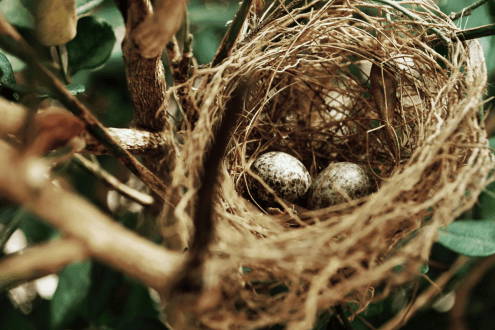The spirit of gratitude
The intention behind what we give is more important than the actual gift, says Tanis Taylor

That the three wise men brought baby Jesus exotic gifts wasn’t the thing. There are more practical things to give a new mother than gum resin and precious metals. Rather, it was the spirit in which the presents were given – the intention, that they had walked there for days – that was the real gift.
Seldom do the best gifts relate to monetary value. Knitted goods and home-made cards have huge sentimental value but don’t fetch much on eBay. It is our interpretation that informs a value.
In his 2007 study, social psychologist Dr Alex Wood presented 200 people with identical short stories of events in which they were supposedly being helped. He asked his subjects to rate how costly, valuable and altruistic they considered the help they had received. The responses were dramatically different. Those who were more predisposed towards grateful thinking rated the help highly and believed it had been costly, valuable and authentically given while others were liable to be more suspicious, question the motivation of the benefactors or fear they had incurred a debt of gratitude.
For a lucky few, gratitude is a daily habit of mind that can transform a sunset, a tuneless carol or a box of Cadbury’s Roses into a cause for thanksgiving. Some people, wrote psychologist Abraham Maslow, ‘have a wonderful capacity to appreciate again and again, freshly and naïvely, the basic goods of life, with awe, pleasure, wonder, and even ecstasy’. For the rest of us, however, gratitude is not so much a passive state as an active exercise in positive interpretation.
The case for gratitude is strong. ‘Grateful people report consistently higher levels of positive emotions, life satisfaction, vitality, optimism and lower levels of depression and stress,’ says Dr Robert Emmons, author of Thanks! How Practising Gratitude Can Make You Happier. Experiencing gratitude can boost our happiness levels, improve wellbeing, make us less dependent on material goods and help us enjoy greater fellow-feeling and empathy.
The Romans maintained that gratitude was the true cornerstone of civilisation while social scientists argue it advanced our evolution from something brutal and clamorous to a more elegant, upstream reciprocal system (Current Directions In Psychological Science, 2008).
‘Religious people say grace, and thank God in their prayers, and I think the ritual habit of reminding oneself of the reasons one has to feel gratitude is extremely beneficial,’ says philosopher Julian Baggini.
But today, without a ready-made set of rituals and practices we must, in the spirit of ingenuity and secularism, invent our own. Gratitude practices can be anything – a momentary pause before the duvet is thrown back to appreciate what you have, photographs on a wall, a morning mantra. Emmons prescribes active pursuits of gratitude – keeping a ‘positive things’ journal and prayers, visual daily reminders. Wood suggests that if our experience of gratitude is directly informed by our interpretation of events, then we might all take a little time this season to think actively about how a gift might have been costly, valuable and altruistically given.
The festive season is flush with opportunities – from making a Christmas toast to writing thank you letters – to put a positive spin on what we have. At Christmas we are assailed from every angle by idealised notions of festive harmony, so there’s a tendency to feel disillusioned when confronted with the reality of our own, imperfect version.
Gratitude is a wonderful antidote. It makes us focus outwards, on the intentions of others. It needn’t result in effusive thanks for a hastily bought pair of socks, but if you can learn how to unpack skilfully – to reflect and reframe your interpretation of a present or an event – it might just prove the greatest gift.
More inspiration
Read Cheryl Rickman on giving thanks on lifeLabs









